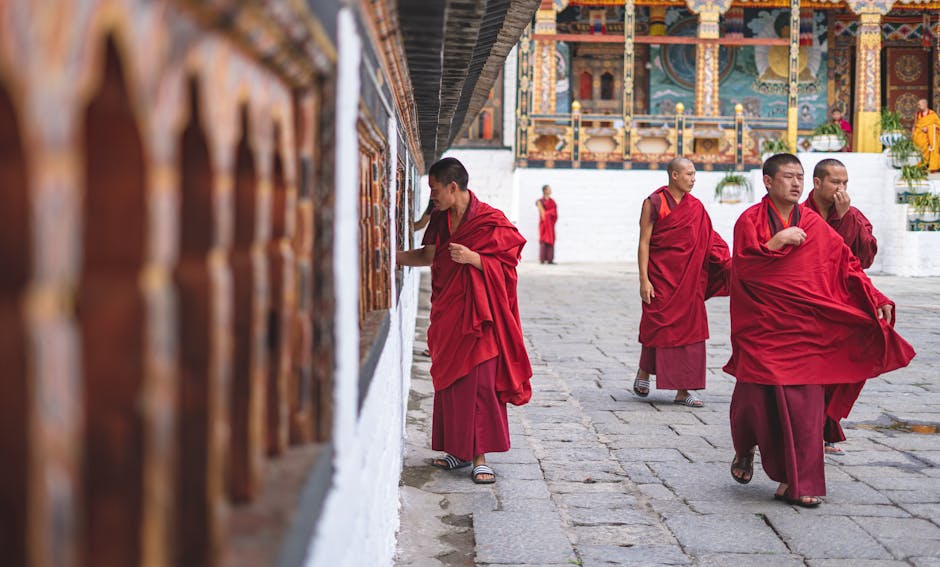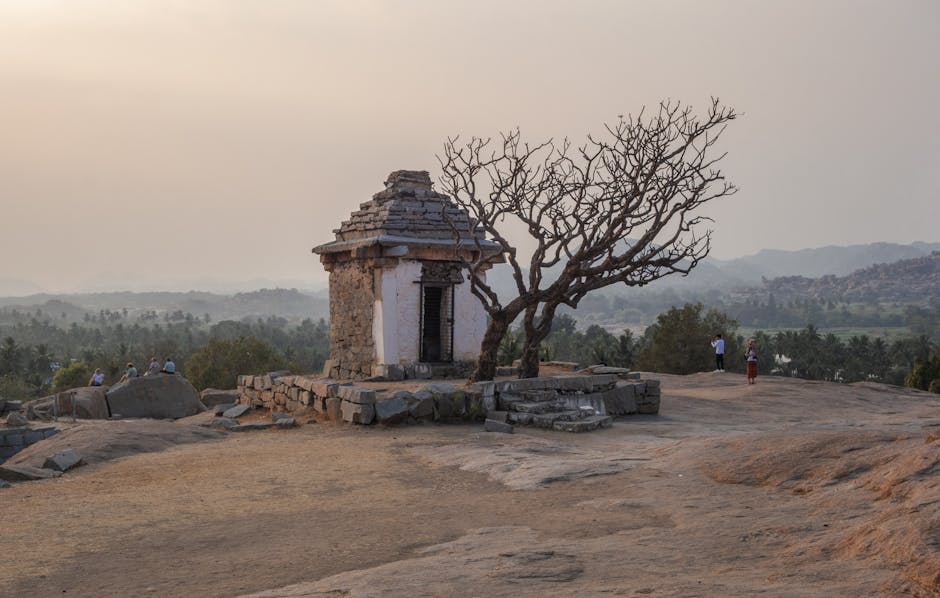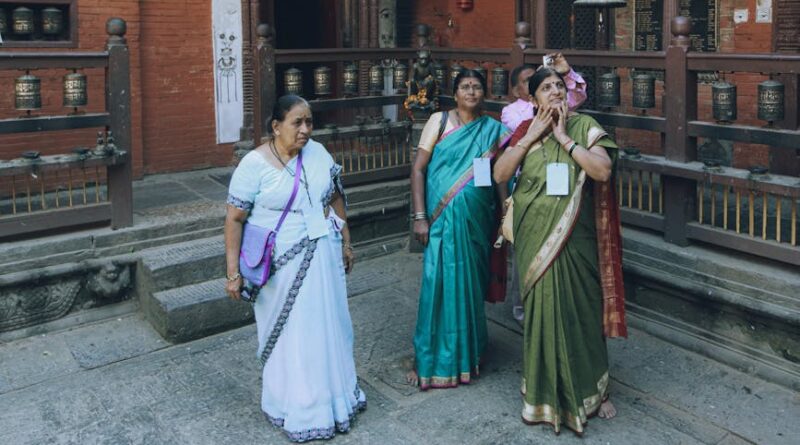Exploring Religious Traditions and Meanings
Religion has been a central aspect of human culture and society since the dawn of civilization. It influences our beliefs, values, behaviors, and interactions with the world around us. The diversity of religious traditions and the meanings attached to them offer a rich tapestry of spiritual practices, rituals, and philosophies that shape our understanding of the universe and our place in it. In this article, we will delve into the intricate world of exploring religious traditions and meanings, examining their historical roots, contemporary relevance, and profound impact on individuals and societies.
The Evolution of Religious Traditions

Religious traditions have evolved over millennia, shaped by historical, cultural, and geographical influences. From ancient polytheistic beliefs to modern monotheistic faiths, the development of religious traditions reflects the changing dynamics of human societies. For example, the ancient Egyptian religion centered around the worship of multiple gods representing different aspects of nature and the afterlife. In contrast, Christianity, Islam, and Judaism are monotheistic religions that believe in a single, all-powerful deity.
Throughout history, religious traditions have played a crucial role in shaping the moral and ethical frameworks of civilizations, guiding individuals in their quest for meaning and purpose. The study of religious traditions provides valuable insights into the beliefs, practices, and values that have defined human societies across time and space.
The Significance of Rituals and Ceremonies

Rituals and ceremonies are integral components of religious traditions, serving as symbolic acts that connect individuals to their spiritual beliefs and communities. These practices vary widely across different religions, encompassing rites of passage, worship services, and sacred ceremonies that mark significant events in the life of a believer.
For example, the Hindu tradition of Diwali, also known as the Festival of Lights, is a vibrant celebration that symbolizes the victory of light over darkness and good over evil. During Diwali, families illuminate their homes with candles and lamps, exchange gifts, and partake in feasts to honor the divine and strengthen familial bonds.
Similarly, the Christian sacrament of baptism is a ritual that signifies the initiation of an individual into the Christian faith. Through the symbolic act of immersion in water, believers are cleansed of their sins and born anew in the grace of God.
The Role of Symbols and Sacred Texts

Symbols and sacred texts are essential elements of religious traditions, serving as visual and textual representations of spiritual truths and teachings. Symbols, such as the cross in Christianity, the crescent moon in Islam, and the lotus flower in Buddhism, convey profound meanings and evoke powerful emotions among believers.
Sacred texts, such as the Bible, the Quran, the Bhagavad Gita, and the Tao Te Ching, are revered scriptures that contain the foundational teachings, moral precepts, and spiritual insights of various religious traditions. These texts serve as guides for believers seeking wisdom, guidance, and inspiration in their spiritual journey.
The Concept of Sacred Spaces and Places

Sacred spaces and places hold special significance in religious traditions, serving as physical locations where believers can commune with the divine, engage in worship, and seek spiritual solace. These sacred sites are often imbued with historical, cultural, and religious significance, attracting pilgrims and devotees from far and wide.
For example, the Kaaba in Mecca is the holiest site in Islam, towards which Muslims around the world turn in prayer five times a day. The Ganges River in India is a sacred waterway revered by Hindus for its purifying properties and spiritual significance. The Western Wall in Jerusalem is a sacred site for Jews, where they gather to pray and lament the destruction of the ancient Temple.
The Intersection of Religion and Ethics
Religious traditions often provide a moral and ethical framework that guides believers in their daily lives, shaping their behaviors, decisions, and interactions with others. The ethical teachings of religions emphasize values such as compassion, justice, honesty, and humility, encouraging believers to cultivate virtues that promote harmony and well-being in society.
For example, the Five Precepts in Buddhism, which include refraining from harming living beings, stealing, sexual misconduct, false speech, and intoxication, serve as ethical guidelines for Buddhists seeking to live a moral and virtuous life. Similarly, the Ten Commandments in Judaism and Christianity outline fundamental ethical principles that govern the relationship between humans and the divine, as well as interpersonal relationships.
The Impact of Globalization on Religious Traditions
In the era of globalization, religious traditions are increasingly interconnected and influenced by cross-cultural exchanges, technological advancements, and social media platforms. The dissemination of religious teachings, practices, and beliefs has become more accessible and widespread, transcending geographical boundaries and fostering a sense of global community among believers.
Globalization has also led to the emergence of new religious movements, hybrid spiritual practices, and syncretic belief systems that blend elements of different traditions to create unique expressions of faith. This cultural exchange and diversity contribute to the richness and dynamism of religious traditions, expanding the ways in which individuals engage with spirituality and connect with the divine.
Common Misconceptions About Religious Traditions
One common misconception about religious traditions is that they are static and unchanging, rooted in outdated beliefs and practices that are no longer relevant in the modern world. In reality, religious traditions are dynamic and adaptive, evolving in response to social, political, and cultural changes while maintaining core principles and values that are timeless and enduring.
Another misconception is that all religious traditions are inherently divisive and conflict-ridden, fueling intolerance and violence among believers. While it is true that religious differences have been sources of tension and conflict throughout history, many religious traditions also emphasize principles of peace, love, and reconciliation that promote interfaith dialogue and cooperation.
FAQs About Exploring Religious Traditions and Meanings
Q: How can I learn more about different religious traditions?
A: You can explore religious traditions through academic courses, cultural events, religious institutions, and online resources that provide information about various beliefs, practices, and rituals.
Q: Are there similarities between different religious traditions?
A: Yes, many religious traditions share common themes, such as the belief in a higher power, the importance of ethical conduct, and the practice of prayer and meditation, which reflect universal human aspirations for meaning and connection.
To Wrap Things Up
Exploring religious traditions and meanings offers a profound journey into the spiritual, cultural, and philosophical dimensions of human existence. By delving into the rich tapestry of religious beliefs, practices, and values, we gain a deeper understanding of ourselves, our world, and our place in the cosmic order. As we navigate the complexities of religious diversity and engage with the profound meanings embedded in different traditions, we cultivate a sense of empathy, respect, and appreciation for the multiplicity of human experiences and expressions of faith.
In conclusion, the exploration of religious traditions and meanings is a transformative and enlightening process that broadens our perspectives, deepens our insights, and enriches our spiritual journey. By embracing the diversity of religious beliefs and practices, we foster a culture of tolerance, understanding, and peace that transcends differences and unites us in our shared humanity.




